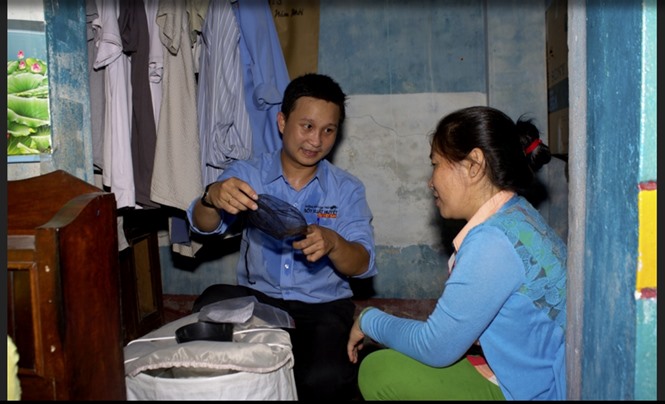 Society
Society

The Ministry of Health will release 1 million to 1.4 million of Wolbachia-infected mosquitoes in four wards in Nha Trang in an effort to reduce the number of incidences of dengue fever and Zika virus infections.
 |
| The Ministry of Health will release 1 million to 1.4 million of Wolbachia-infected mosquitoes in four wards in Nha Trang in an effort to reduce the number of incidences of dengue fever and Zika virus infections. — Photo thanhnien.vn |
HCM CITY — The Ministry of Health will release 1 million to 1.4 million of Wolbachia-infected mosquitoes in four wards in Nha Trang in an effort to reduce the number of incidences of dengue fever and Zika virus infections.
About 56,000 people live in the wards, which include Vĩnh Phước, Vĩnh Thọ, Vĩnh Trường and Phước Long.
Wolbachia is a bacterium that exists in up to 60 per cent of different species of insects, but not in the dengue and Zika-carrying mosquito Aedes aegypti.
Scientists have transferred Wolbachia from the fruit fly to Aedes aegypti mosquitoes to reduce the ability of mosquitoes to transmit dengue and Zika viruses.
After the initial release of several weeks, mosquitoes with a Wolbachia bacterium are expected to mate with wild mosquitoes without Wolbachia.
When male mosquitoes with the Wolbachia bacterium mate with female mosquitoes, the females develop eggs, but they won’t hatch. If the females already carry Wolbachia, all the offspring will have Wolbachia.
When female mosquitoes with the Wolbachia bacterium mate with males without Wolbachia, all her offspring will have Wolbachia.
As the bacteria are passed on from generation to generation and over time, the percentage of mosquitoes carrying Wolbachia grows until it remains high without any need for further release.
After three months of releasing Wolbachia-infected mosquitoes, the number of the mosquitoes at the four localities, the number is expected to reach 70 per cent of the total mosquito population.
In March last year, the World Health Organisation recommended pilot deployments of the Eliminate Dengue Programme approach, which introduces Wolbachia into mosquito populations to prevent transmission of Aedes aegyot- transmitted viruses as an alternative to mosquito population suppression.
Lê Tấn Phùng, deputy head of the Khánh Hòa Province’s Department of Health, said the provincial People’s Committee has not yet decided the time to release the Wolbachia-infected mosquitoes in the four wards.
The committee is now instructing agencies to collect opinions about the release to people in the wards.
The first trial site for release of Wolbachia-infected mosquitoes was on Trí Nguyên Island in Khánh Hòa Province in 2013 under the Eliminate Dengue Việt Nam programme, monitored by the Ministry of Health. The release was completed in 2014.
Around 100 per cent of the mosquitoes in the area are now carrying Wolbachia, according to a press release published on the website of the Eliminate Dengue Việt Nam programme.
Thanks to the programme, only one person was infected with dengue fever on the island in 2015. As of the end of last year, there were no cases of dengue fever, but cases still occurred in Nha Trang, which is located in Khánh Hòa Province.
The programme is conducted by Australia’s Monash University under the sponsorship of the Foundation for the National Institutes of Health through the Bill & Melinda Gates Foundation’s Grand Challenges in Global Health Initiative.
Begun in 2005, the programme has been carried out in Australia, Brazil, China, Indonesia and Việt Nam.
Research published in Scientific Reports journal in July 2016 showed more evidence that Wolbachia blocked transmission of the Zika virus.
The research was conducted by scientists from the University of Wisconsin-Madison and the Universidad de Antioquia.
“We found that mosquitoes carrying Wolbachia were less likely to become infected with Zika virus after feeding on viral blood, and those that were infected were not able to transmit the virus through their saliva,” said Jorge Osorio, professor at the University of Wisconsin, one of the authors of the report.
In the Eliminate Dengue Việt Nam programme, 23,682 Aedes aegypti mosquitoes were collected and stored in Nha Trang from March, 2015 to May, 2016.
Of these, 56 tested positive for Zika virus and 29 positive for dengue virus.
As of November last year, the province had recorded two patients positive for Zika virus and 4,454 patients infected with dengue fever.
Nha Trang City and Ninh Hòa Town had the highest number of dengue fever patients. — VNS




